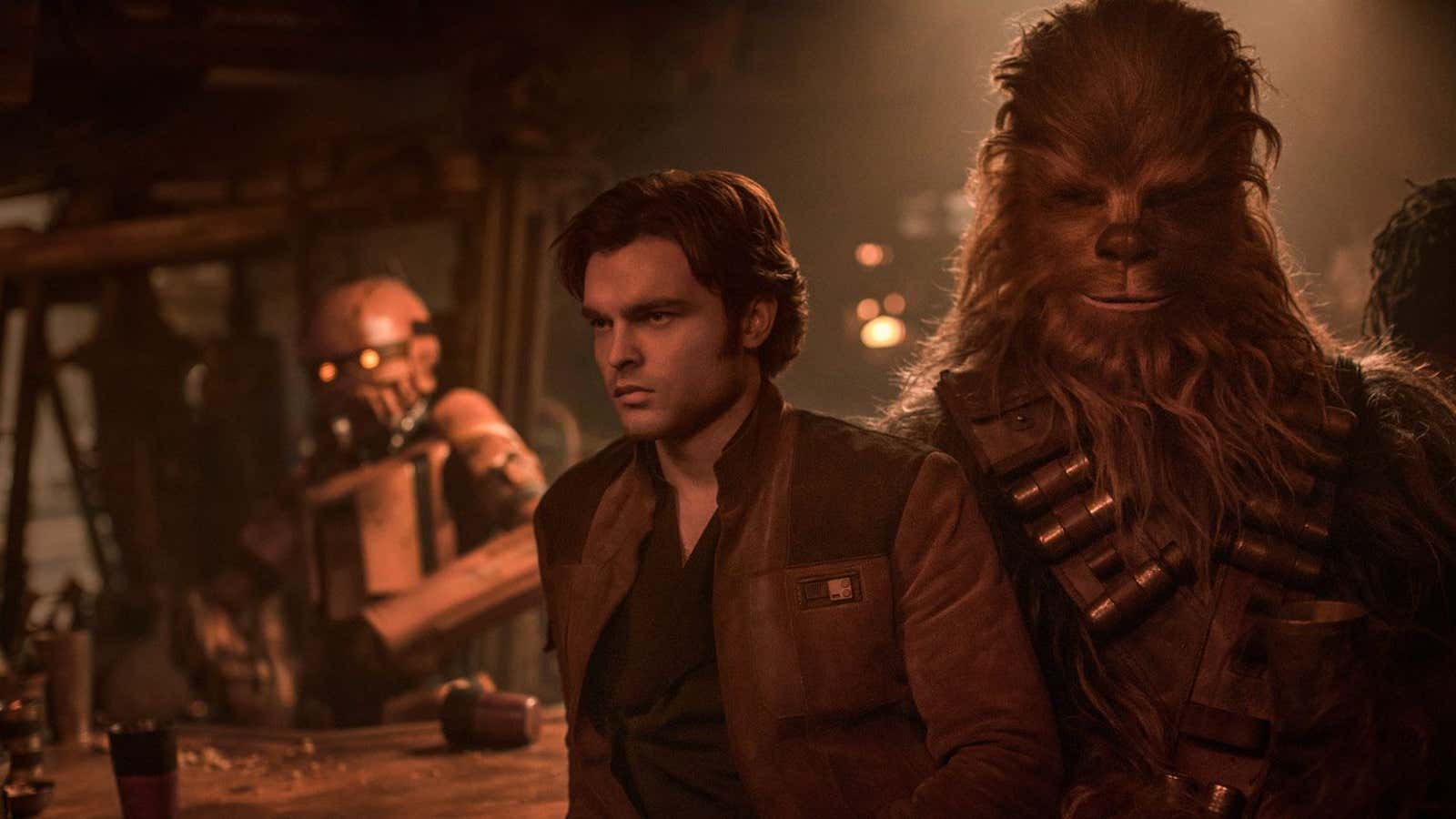When Disney missed on earnings at the end of 2017, it announced a new Star Wars trilogy and the company’s stock price swiftly changed course. When it needed investors onboard with its upcoming streaming service, it pitched them with a Star Wars live-action TV show. Star Wars may not carry the same cachet with Wall Street anymore.
Disney’s latest Star Wars film, Solo, opened with a disappointing $103 million domestically over the four-day US holiday weekend (including Friday), Box Office Mojo estimated. It was a solid debut by many measures, but not for a Star Wars movie. Disney, which reportedly spent around $250-$300 million making the film, was projecting $130-150 million in returns heading into the weekend. It was the worst opening of any of the company’s four Star Wars releases.
The media company is trying to understand where it went wrong. But the reality is, expectations for Solo were probably too high from the start.
Disney modeled Star Wars after its Marvel subsidiary when it started building new franchises and standalone films set within a larger universe. It needs to start approaching Star Wars releases like Marvel, too. Not every one is an event film that audiences will rush to on opening weekend. Some, like Doctor Strange and Ant-Man, will be good films with smaller audiences because they’re based on lesser-known characters, or explore different genres. Rogue One was very much a war movie. Solo is a space Western. They have different audiences than a classic Star Wars saga film.
Others may be bad movies that succeed in spite of themselves, like Thor: The Dark World, because the broader movie universe raises their profile. With Marvel, Disney has 7,000 or so characters to draw from in its comic-book universe, many with existing publishing franchises and fandoms. Fandom for Star Wars characters stems from primarily from the films, as well as the Expanded Universe of TV shows, books, comics books, toys, and games.
There are likely many reasons Solo underwhelmed. It was the first of Disney’s Star Wars movies to brave the competitive summer box-office. It followed two big movie releases, Avengers: Infinity War and Deadpool 2. The mediocre reviews surely didn’t help. And audiences may be fatigued by the franchise. The last film, The Last Jedi, hit US theaters just six months ago. “We have a lot of work to do in trying to understand this,” Dave Hollis, Disney’s distribution chief, told The Hollywood Reporter. ”We are all over it and will spend a lot of time digging into why things happened the way they did in various markets. We have a year and a half before Episode IX comes out.”
Marvel Studios has never had a true film flop—even The Incredible Hulk was viewed as a mild success. Disney’s Lucasfilm probably won’t truly have one with Star Wars either—as long as it calibrates expectations accordingly.
